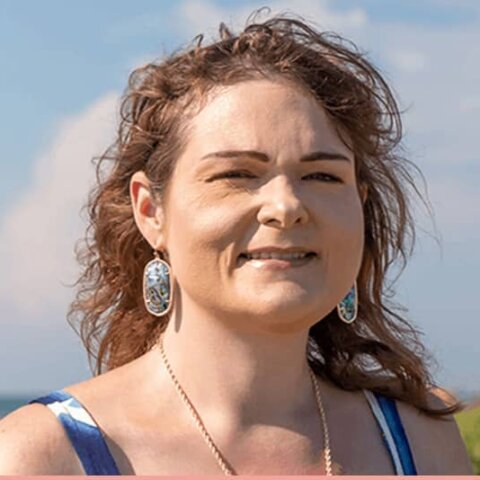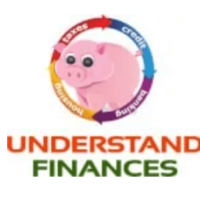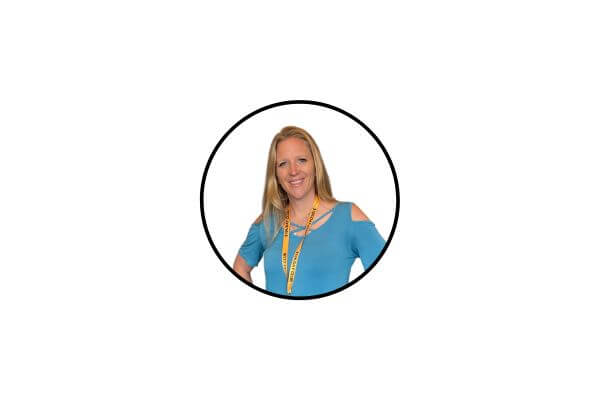40 Financial Experts Divulge Their Best Money Management Tips
This post may contain affiliate links, which helps us to continue providing relevant content and we receive a small commission at no cost to you. As an Amazon Associate, I earn from qualifying purchases. Please read the full disclosure here.
Money management should come naturally, right? Just like riding a bike. Little bumps along the way and then smooth sailing from there.
But, is personal money management that easy?
Unfortunately, for most of us, we were not taught basic personal finance skills. We walked onto a college campus with companies offering a free t-shirt to sign up for a credit card. The beginning of the debt trap started way too soon.
Maybe you were lucky to learn a few tricks, but haven’t made the progress that you wanted to.
That is why you are the luckiest person to read this post on the best money management tips! There are so many fabulous words of advice that you should bookmark it and save it. (Or even pin to your Pinterest boards.)
Money management encompasses five key areas:
- Making Money
- Budgeting
- Saving
- Investing
- Spending
As natural humans, the last category of spending is the easiest to do and fun place to be.
You must devote to learning the money management skills of budgeting, saving, and investing.
Today, you are going to learn from financial experts. These are the people who teach people every single day about ways to improve their money management skills.
You don’t want to miss any of these money management tips.

What is the goal of good money management?
The ultimate goal of solid money management is to not be a slave to your money.
By working, you are paid an income. Then, you save part of that income. That way you don’t have to work every single day of your life for an income just to meet your expenses.
Becoming active in managing money means you are proactive in saving / spending money and not reactive trying to make ends meet.
This post you will teach you how can I improve my money management skills.
You will hear from various money experts on what is basic money management and their advice is golden.
Money Management Basics
Think Like A CEO
You are the CEO of your own life. When it comes to your finances and figuring out your next best moves, no one else is going to do it for you. Embracing the CEO role means taking responsibility for the profitability and growth of your household both professionally and personally.
A lot of attention is paid to cutting expenses and increasing your income, but the real magic happens in the difference between the two. A typical household may have a 5% “savings rate,” meaning for every $100 they bring in, they really only keep $5.
I’ve found the more “profitable” I can be, the less financial stress I have. That’s why before figuring out investing strategies and portfolio allocation tactics, I think it makes sense to first figure out how profitable you are – basic income minus expenses.
Make One Good Investment
This good investment I am referring to is YOU.
What I mean by investing in yourself is learning, watching podcasts, hiring a life coach, anything that will broaden your horizons.
When you gain more knowledge you are increasing your chances of making more money, remember you are only one idea from your first million dollars!
Stress The Basics, Not The Rest
There are literally millions of financial variables between now and retirement. Less than optimal decisions on the vast majority of these variables will have little long term impact on your financial success.
What will have a significant impact on your retirement success is how you handle the basic financial decisions.
- Are you saving enough?
- Are you properly diversified?
- Are you changing your investments based on the news/economy? (please say no…)
If you get these three basic decisions right and ENGRAIN these good habits, all of the other financial decisions are less important. You can make mistakes if you get the basics right and still be okay.
Know Your Important Money Numbers
It’s absolutely critical to know your important money numbers in order to effectively manage your money. Some of these numbers include your:
- After-tax income
- Monthly expenses
- Debt (total and for each loan)
- Savings and savings rate
- Interest rates (for debt and savings)
- Credit score
- Net worth
Knowing the above will mean you know where you stand financially and will allow you to effectively set money goals and achieve them. You know where you are and can plan where you’re going, as well as be able to track your progress along the way.
Why Does Money Management Matter Today?
Focus on the Present
Saving for the 65 year old you is hard, hard to focus. Saving for today is something we can see, understand, and focus on.
That's why the pursuit of financial independence and creating a focused approach to your finances and a large savings rate is the ultimate answer.
It sneakily focuses on today as you get your financial act together now, but also because of the power of compounding focuses on the 65 year old you.
Focus on the Journey
Many people put their lives on hold while they pursue financial freedom or financial independence.
Once you can cover your expenses and save a little bit, you can use the incremental financial freedom you gain along the way to design a life you love. This could include taking a mini-retirement, starting your own business, working part-time, etc.
There are so many things we can do to make our lives better as we build financial freedom.
Your Building Blocks
Building wealth is like building blocks of Legos that you want to tower in the sky. You can't just jump to the top of the tower; you must build one step at a time.
Similarly, with net worth, you can't magically have a million dollars without reaching smaller milestones first.
You need to take things one step at a time with your personal finances. More importantly, you must know your reason why you desire to prioritize your money management.
By knowing what you want from your money journey, it will help you make the daily, small decisions that will build your net worth.
Understand the Money Bliss building blocks to financial freedom.
Money Mindset, Values, and Goals
Be Different
Being different and not trying to keep up with the “in-crowd” is one of the best ways to save money. Before I even knew about budgeting, I was always able to save money by simply not caring to buy the latest fads or name brands.
Don’t worry about what others have that you don’t. Try to be a better version of yourself, rather than competing with others. If you’re not trying to impress people, it will be easier to live within your means.
Respect Your Money
Here’s a little story about how I learned to respect my money:
My wife, Allison, and I were working as food servers at a big sports-themed restaurant in Times Square (The All-Star Cafe) when we met in 1995. As servers do, we made most of our money in tips, so I always had a lot of cash on hand. Without even thinking much about it, I used to crumble up my money and stash it in random pockets throughout my shift. Since there was no rhyme or reason to how I sorted my bills, I never kept track of how much I made or gave much thought about what I did with it afterward.
When Allison saw how I was treating my money, she was horrified. She had previously worked in retail, so she was used to handling large volumes of cash. Her simple lesson for me was to stack my money, put it in order, and fold it neatly into my wallet.
It was such a simple lesson, but it taught me how to be more mindful and respectful of my hard-earned money. It’s a vital lesson whether you’re making minimum wage or you have millions of dollars. The more thoughtful you are about your money, the more likely you are to save it, grow it, protect it, and enjoy it.
Develop Good Money Habits
Just as with everything else, the way we manage our money is a habit. I will give you examples of three money habits you must develop to manage your money well.
The first one of the best money habits to develop is prioritizing your money goals. Being clear with the goal – either it’s saving money for a holiday, paying off a debt, or just being more responsible with your budget; is what will help you make the right decisions at any point.
The second money habit I usually underline is to be your money’s boss. Many of us believe that we work for money, and that might be true to some extend. But in reality, the right approach is to make our money work for us. Give it a job. The moment you get your paycheck – give that money a purpose. Tell it where to go and how to serve you. That’s the right money mindset.
The last money habit you want to develop is to simply talk about money. Did you know that people feel more comfortable speaking about their bedroom activities with strangers, but avoid talking about money to their partners? Miscommunication is the biggest problem when a family struggles with budgeting their income. Learn to talk about money by having daily money-talk. Open up and share your vision, your ideas.
Align Your Money With Your Values
When what we do in money discipline also connects to a personal belief system, then the results are considerably more powerful, habits develop faster and last longer, and our satisfaction improves considerably.
Money and your decisions about it do not need to be devoid of belief or passions.
Money in Relationships
Work Together
When it comes to managing your money in your marriage it’s critically important that you do it TOGETHER with your spouse. Although you may come from different backgrounds, have different personalities, and handle money differently it’s very important to get on the same page.
Sit down with your spouse and create your dream life together. What does it look like? What type of lifestyle is it? How much money do you need to afford it?
After you create your dream life together bring all of your finances to the table. Talk about your debt, mortgage, investments, etc. Be open and honest and come with a lot of love and empathy. Make a plan you can both agree upon and stick to it.
Teamwork makes the dream work. If you love your spouse and want to have a successful and happy marriage, you must get on the same page with your finances.
Keep Your Partner Informed
If you are in a relationship, it is critical that you keep your partner included in the household finances.
Nothing destroys a relationship faster than money and nothing can build your wealth faster than having a partner who is committed and excited to take your lives to the next level.
Too many times only one person in the relationship handles the finances and the other one checks in from time to time.
Try to find a way to keep them involved and interested if personal finance is not their thing. Doing this will allow you to see massive results in your personal wealth and net worth.
Accountability
Find Yourself a Money Buddy!
It’s still a sad reality that it’s not considered polite to talk about money. And, because money touches all the most important parts of our lives, it’s a very intimate topic! Finding a money buddy is an excellent antidote.
A money buddy is a trusted friend with whom you can be totally open about your finances: your goals and dreams, as well as your insecurities and mistakes. You can share your actual numbers without fear of judgment, and of course, you do the same for your friend. You can be accountability partners to each other, through the inevitable challenges, both big (job loss, medical crisis) and small (a sale at your favorite store, how much to spend on vacation).
So much of our money behaviors are on autopilot. It’s when we can interrupt our default reactions, pause and take a breath to reconnect with our true intentions, that we make wiser financial decisions. A money buddy can be a great way to do that.
Do A Monthly Money Meeting
A monthly money meeting can be done by yourself, with a friend, or as a family. It’s easy too!
Each month, each participant should prepare for the meeting by recording all collecting basic personal finances info of their bank accounts + balances, all debts, and a few short and long term financial goals. Nothing too crazy.
Next, get together with your group and go through each person’s finances one by one. Allow them to talk through any money events that happened that month (e.g. why bank account numbers balance went down, why they acquired new debt, how they paid off old debt, etc.), and then allow them to go through some of their financial goals (new ones, changes to old ones, etc.).
This is all very simple, but the act of writing this information down each month plus discussing it with other people has huge positive effects. You’ll be less likely to slip up on your goals and you’ll be more aware of your financial situation throughout the year.
Income / Make Money
Diversification Is Everything
When it comes to managing your money, diversification is vital. And while most people deploy this tactic when investing, it doesn’t end there. I believe keeping your income streams, skills, and investment diversified is critical to your ongoing financial success.
Too many people tend to rely on a single income stream to keep their finances in check, namely their 9 to 5. Instead, ensuring that you have multiple income streams can help to relieve any financial pressures that may arise throughout your lifetime or be used to supplement your current investment strategy. Your income streams don’t need to be fancy, either.
Dividend investing might be one of the most simple and effective ways to build an additional income stream for your finances.
Understand Your Financial Situation!
If you don’t know the numbers within your financial situation, it will be extremely difficult to manage your money effectively. In order to make educated decisions on spending and saving, you first need to know your financial details. With these, you can then move forward and make better money management decisions.
What numbers do you need to know?
It’s important to understand exactly how much money you have coming in each month (after taxes and deductions, also known as your net or take-home pay), how much each of your fixed bills cost, as well as how much you are spending on other variable expenditure categories such as groceries, dining out, entertainment, and shopping. Once you have an idea of what you’re spending each month, you can subtract this from your total income for the month to determine if you’re left with a surplus or shortage.
If you have a shortage, then it’s time to quickly make changes to your spending or income generation moving forward so that you aren’t wracking up debt in order to afford your lifestyle. If you have a surplus, then hooray! Now you can decide where extra money will go, some people will send extra money to debt, others to savings or investments, and still others to charity. Once you have an idea of how much extra you have, you can then create a budget line for this amount too.
Successful money management is all about figuring out what you have to work within your financial situation. Those numbers will guide how you spend or save your money in order to reach your most important financial goals.
Create Another Stream Of Income
While diversifying investments is important, diversifying income streams is just as important.
By starting a side hustle, you can bring in additional income and increase financial security in your life.
There are so many options like proofreading, virtual assistance, blogging, YouTube, flipping items on eBay, selling on Amazon, etc.
Pick up something that you enjoy doing because you will make it work and find time for it. You want also to pick up something which is more passive in nature and does not require a lot of your time.
Tax Free Income
The combination of stimulus packages, unemployment, the aging population, and massive government deficits has created the potential for dramatic tax increases in the future.
There are places in the U.S. tax code where people can legally grow wealth which will never be taxed again during their lifetimes. Taking advantage of these accounts now will provide significant tax relief when rates are much higher down the road.
The four solutions are Roth IRAs/Roth 401(k)s, 529 College Savings Plans, Health Savings Accounts (HSAs), and whole life insurance. For more information and examples of how these work, you can download a free e-book.
Budgeting / Spending
Keep A Spending Diary To Keep Track Of Spending
This is especially true when you are starting out and a beginner with money management. When it comes to managing your money, disappearing funds is one of the most common things that people struggle with.
In order to help with disappearing funds, keeping a spending diary is a great way to keep track of where your money is going.
A spending diary helps in a few ways. First, knowing where your money goes can help you with budgeting down the road. That $2 seems innocent however times that by 20 and you have $40 gone without even knowing it.
A spending diary also makes you think twice about your purchases. If you know you need to log the expense in your spending diary, you are more likely to think about it versus just slapping down the credit card.
Understand Your Expenses!
It’s hard to manage your money when you don’t even know where the money is going. Tracking your expenses can be an eye opening way to see exactly where your money is going.
Knowledge is the first step in making adjustments to your budget that can pay dividends in the form of higher savings and greater freedom and stress.
It’s a simple as sitting down for a few minutes at the end of the month with a spreadsheet and your online credit card statements and you’ll have a new look at your finances.
Fun Money
No matter how tight your budget is, try to build in a little fun money. Money that you allow yourself to spend guilt-free on whatever you want. You may well have large debts to pay off or are facing a drop in income that means belts must be tightened and budgets must be cut.
Fun money, regardless of income limits, is essential to keep you on track with your budget. Even if it’s just $10 a month, it will make a world of difference to you while you focus on debt pay off and keeping to that strict budget.
Fun money can be the difference between sticking to your budget and blowing it out of the water because you feel too restricted.
Pay Your Bills On Time
No matter how hard is to pay $100 today, it’d be as twice as much harder to pay $200.
Very soon you’ll face late fees and easily caught in a vicious circle of poverty that’ll be hard to overcome.
Have A Budget For Everything
A budget gives every dollar a job and a place.
Having a budget won’t keep you from having fun. Instead, a budget will tell you how much you can spend. It has become a “permission to spend.” Instead of going to the store and feeling guilty for buying clothes, I know exactly how much is in my budget for it and it’s there to be spent!
Having a budget will show you how much extra money you have that was just “disappearing” before.
Separate Your Money Visually
When you separate your money into different buckets, jars, envelopes, or bank accounts, it allows you to be intentional with your money.
On the flip side, when all of your money is in one place or you only use credit cards, it’s easy to overspend and have no clear sense of direction of where you’re spending.
Separating your money into different categories for different spending purposes will do more for you than anything else when it comes to managing your money.
Savings
Create a Savings Fund for Emergencies
Nearly three in 10 (28%) Americans have no emergency savings, according to Bankrate’s latest Financial Security Index.
If you don’t create a savings fund with at least $1,000, you are at high risk of getting in debt if something unexpected happens. Put away at least 10% of your paycheck each month into a savings account.
Before you know it, you will have saved at least $1,000 to aid you for any unforeseen emergencies. You need an emergency fund in your life.
Pay Yourself First
Many people see how much money they have at the end of the month and only then put that towards meeting their financial goals, whether it be building their emergency fund or adding to their retirement accounts. However, there is a risk in doing this that you won’t have as much remaining as you intended – if anything at all.
Instead, a much better strategy is to pay yourself first. That is, as soon as your income hits your account, transfer a portion of this money towards your financial objectives. By doing that, you’ll know that they’re taken care of every month, making it much more likely that you’ll achieve these goals.
And as a way to really do this properly, automating your finances makes it much easier to make sure you’re managing your money properly, including saving and investing as much as you can. Whether it’s setting up your accounts so that your credit card balance is paid off in full every month or so that a set amount is transferred to your savings and retirement accounts the day after you’re paid, automating this process removes any possibility of error.
Have more than one savings account
Competition among banks offering high-yield savings accounts is really intense, so you can take advantage of all of the sign-up bonuses being offered out there as well as the individual perks each bank provides.
Perhaps more importantly, having multiple savings accounts allows you to structure and organize your savings needs and goals in a way that’s difficult or impossible with a single account.
For example, you should have an emergency fund that’s completely separate from the rest of your savings and big enough to cover at least three months’ expenses (preferably six or more). Until it’s large enough, you want to prioritize deposits into your emergency fund; other non-essential savings goals, such as your vacation or home improvement fund, can wait. Moving forward, you shouldn’t touch this pool of money unless you run into a legitimate financial emergency or hardship.
As for non-emergency savings, open an account for every major savings goal or category. Common goal or category examples might include home improvement (discretionary upgrades), home maintenance (repairs and other outlays that need to be made in the normal course of homeownership), medical expenses not covered by insurance, entertainment, and travel.
Treat Yourself As Another Bill (Pay Yourself 10%)
I started paying myself 10% as if it was a bill as soon as I began earning money.
This helped me live within my means and made savings the top priority in my budget.
I love this strategy because it helps me stay on track with my spending without having to worry if I’m saving enough. If I find I have extra income after saving the 10%, I’ll put it into another savings account for something fun like a trip or luxury item!
Put Saving on Autopilot
My best tip for managing money is to always pay yourself first – SPECIFICALLY to have a portion of your earnings automatically invested. For instance, if you receive a paycheck, have a portion of that paycheck go automatically to a savings account. In addition, if your company offers a 401K plan, you should be maxing that out as well.
If you pay yourself first, you will never see that money and will be forced to live with the money you have remaining.
When you get a raise, increase the amount you pay yourself as well. It’s ok to take some of that raise money and do something fun, but your payments to yourself should be increasing as well. This will help you avoid lifestyle creep (where your lifestyle creeps up as you continue earning more money, reducing your ability to save more).
When you have enough money in that savings account, use it to invest. There are many different ways you can do this, and I won’t get into that now. But note it is important to also invest the money you are saving because inflation will eat away at it’s worth.
Create Sinking Funds And Reduce Stress
One of the best things you can do is to start thinking ahead and take small steps to put some money away every month. We do this for Christmas, travel, and other items that come up once a year. When that expense comes up, you will have enough money saved up so that you can spend without worry.
This is highlighted the most with Christmas; it is the difference between having a stressful holiday and an enjoyable one. By automating a smaller amount every month to a separate savings account, you can save yourself from going over budget at Christmas and trying to find where the extra money is coming from.
It’s nice to watch your sinking funds grow and know you have enough put away for when the time comes. A bonus is that you don’t notice the money coming out because it’s a lot smaller than it would be if you just started to save for it a few months before.
Investing
Stop Worrying About Investing. Start Worrying About Asset Allocation.
A ton of people out there worry about stock price valuations, what the market is doing on a day-to-day basis, and what might happen in the future. You end up worrying so much that you never just stay fully invested for the long haul.
If you have the proper allocation of your assets (depending on your age and tolerance for risk of course), you should have no worries at all. Stay the course with your asset allocation and you’ll be in great shape.
So, don’t worry about the market. Worry about if your asset allocation is right.
Know the 5 Smart Investing Strategies
When it comes to investing, there’s no shortage of theories, approaches, and ideas. While there is much to learn about how markets operate and function, understanding a few sound strategies may be enough to help you get started on the process.
Five Smart Investing Strategies simplifies the investment process:
- Don’t time the market
- Asset allocation based on your goals, risk tolerance, and time horizon
- Investment selection of stocks, mutual funds, bonds, and cash
- Automatically invest a set amount at regular intervals (AKA Dollar cost averaging)
- Rebalance your portfolio to make sure your goals align.
Putting together a sound investment strategy can make your investment efforts much more effective. But it doesn’t end there. Effective investing requires an ongoing effort.
Acquire revenue-generating assets.
The revenue generating assets that you acquire in your 20s and 30s will allow you to gain financial freedom sooner in life. In the future those assets (stocks, real estate, a business) will generate cash which will cover your living expenses. When your living expenses are covered a job becomes optional.
No worries, if you missed acquiring revenue generating assets in your 20s and 30s, it's never too late to get started. When you are younger, time is on your side, however, as you get older you may have more money to invest.
Therefore even if you are in your 40s, 50s, or 60s, start investing today in revenue generating assets. You can either invest in these assets (like stocks, real estate, or businesses) or you can create these assets (like starting a side hustle or business).
Just don't wait on the sidelines for the "perfect" time to get started, even small investments can provide you with growing income over time.
Double Check the Beneficiary on Your Accounts
Always make sure that your financial accounts have a beneficiary named on them. Not just a primary beneficiary, but also a secondary beneficiary in case the primary passes away or cannot be reached.
I found this out the hard way when my brother passed away suddenly and his life insurance, pension and 401(k) were forced to go through the probate process instead of simply having a beneficiary file a claim directly.
Smart Credit Card Usage
Use Credit Cards Wisely
Managing your money like a pro doesn’t mean that you can’t use credit cards. Many credit card companies offer rewards and cash back that you can use to your benefit.
Discounts on travel, cash back on purchases, and other rewards add up to saving more of your hard-earned money.
It’s okay to use credit cards for daily purchases like groceries and gas for the car, to earn extra rewards. But make sure you can pay your credit card off every month, you don’t want to carry a balance and pay high interest rates on a credit card.
Use Credit Card Rewards
Use a rewards credit card for all of your purchases. You can earn cash back, airline miles, or hotel points to pay for your travel expenses. Just make sure you pay the balance in full each month to avoid paying interest.
The money you save by using rewards for your travel can then be used to pay off your debt or save for your future. This is a big part of our strategy to eliminate our mortgage quicker and fully fund our retirement accounts.
Maximize Credit Card Bonuses for Travel
Prioritize experiences over “stuff” and travel for free. You can do this by taking advantage of credit card bonus incentives (i.e. 30,000 airline miles for a $500 spend in the first 3 months) to build a travel fund.
It’s important to limit charges to regular expenses and not overspend resulting in balance carryover with finance charges.
I use Travel Freely, a free app to keep track of my reward offers and find the best reward offers and bonuses every month. You can learn more about how I use this service.
Solid Money Management leads to how can I be rich
Wow, those are tremendous money management tips for beginners and great reminders who have been diligent in managing money.
As the famous saying,
A penny saved is a penny earned.
Author Unknown
That is the basic philosophy on how to become rich.
It is taking one of the best money management tips and learning to master that skill. Then, moving on to the next idea.
Learning to manage your money is not a one-time occasion. It is something you must do continually.
Just because you are afraid to start and make money mistakes, don’t let that hold you back from living the life of your dreams.
Don’t forget to bookmark this amazing money management resource! Pin to your Pinterest boards now.

Did the post resonate with you?
More importantly, did I answer the questions you have about this topic? Let me know in the comments if I can help in some other way!
Your comments are not just welcomed; they’re an integral part of our community. Let’s continue the conversation and explore how these ideas align with your journey towards Money Bliss.









































